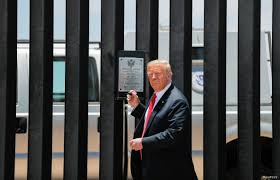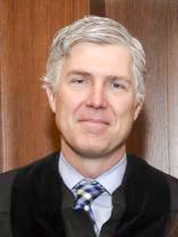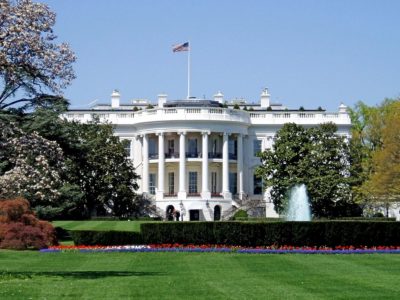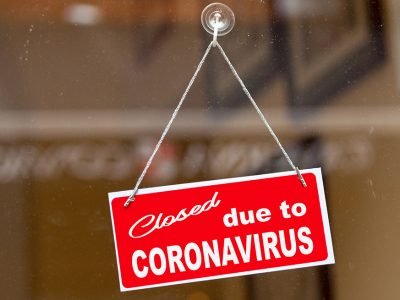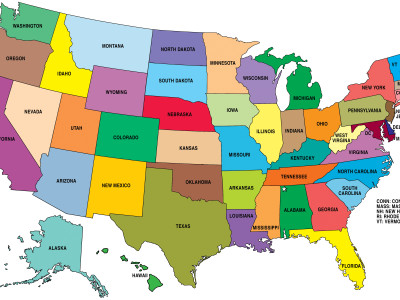U.S. Supreme Court
Fancy Dancing on the Appalachian Trail
How to Use Textualism to Evade Statutory Texts
The Supreme Court’s decision in Cowpasture case allows gas pipelines to cross the Appalachian trial. The ruling didn’t get much attention because of its timing. It came down the same day as Bostock, which outlawed employment discrimination against gays and transsexuals. Bostock featured a big battle over the meaning of textualism. But Cowpasture was also …
Continue reading “Fancy Dancing on the Appalachian Trail”
CONTINUE READINGTrump’s Border Wall, the Ninth Circuit Court of Appeals and Separation of Powers
U.S. Court of Appeals Rules Unconstitutional Trump Administration’s Diversion of $2.5 Billion in Congressionally-Appropriated DOD Funds for Border Wall Construction
Late last week, the U.S. Court of Appeals for the Ninth Circuit struck down the Trump Administration’s attempted diversion of $2.5 billion in federal funds Congress had appropriated for the Department of Defense. The Trump Administration did so in order to finance President Trump’s proposed, controversial border wall at a level Congress had expressly declined …
Continue reading “Trump’s Border Wall, the Ninth Circuit Court of Appeals and Separation of Powers”
CONTINUE READINGWhat Does Today’s Decision Holding that Employers Can’t Discriminate Against LGBTQ Employees Have to Do with Climate Change?
The case provides potent ammunition for using the Clean Air Act to regulate carbon pollution
Today’s blockbuster opinion in Bostock v. Clayton County, Georgia, holding that employers can’t fire LGBTQ workers under Title VII of the Civil Rights Act, may seem far afield from the regulation of greenhouse gases under the Clean Air Act. But its reasoning could have huge implications for climate change action. In saying that discrimination …
CONTINUE READINGThe Conservative Assault on Presidential Administration
Are they afraid of “faceless bureaucrats”? Or Democratic Presidents?
Conservatives are on a campaign to reduce agency discretion. They don’t seem to realize that in today’s world, that really amounts to an attack on presidential power. These days, it’s generally not bureaucrats or even cabinet officers who make the real decisions about regulation. It’s the White House. So the campaign against the administrative state …
Continue reading “The Conservative Assault on Presidential Administration”
CONTINUE READINGDo Epidemic-Based Business Closures by Government Trigger an Unconstitutional “Taking”?
Longstanding U.S. Supreme Court Precedents Indicate the Answer is an Unequivocal “No”
Lately, an increasing number of public and private voices have been raised in opposition to business closures ordered by state and local governments in response to the COVID-19 epidemic. In many such cases, that opposition has taken the form of lawsuits filed by business owners, claiming a violation of their constitutional rights. Gun shops across …
CONTINUE READINGThe Coronavirus and the Commerce Clause
Could Congress mandate CORVID-19 vaccinations? Not if you take some Supreme Court opinions seriously.
If we get a vaccine against a national epidemic, could Congress pass a law requiring everyone to get vaccinated? That very question was asked during the Supreme Court argument in the 2012 constitutional challenge to Obamacare’s individual mandate. The lawyer challenging Obamacare said “no, Congress couldn’t do that.” What’s shocking is that this may have …
Continue reading “The Coronavirus and the Commerce Clause”
CONTINUE READINGHere Today, Gone to Maui
U.S. Supreme Court Issues Environment-Friendly Ruling in Major Clean Water Act Case
This week the U.S. Supreme Court issued its decision in the Court’s most important environmental law case of the current Term: County of Maui v. Hawaii Wildlife Fund. In a somewhat surprising ruling, the justices rejected both sides’ argument over the scope of government authority to regulate water pollution discharges under the federal Clean Water …
Continue reading “Here Today, Gone to Maui”
CONTINUE READINGIs Saving Lives Unconstitutional? A Response to John Yoo
Takings law is complicated, but the answer to this question is clear. The answer is no.
Like others on the extreme right, the Hoover Institution is campaigning against “stay at home” orders because they cost too much money. Regrettably, the most recent argument to this effect on their website is by my colleague John Yoo. He argues that the Constitution requires states to compensate business owners for their losses. That’s simply …
Continue reading “Is Saving Lives Unconstitutional? A Response to John Yoo”
CONTINUE READINGFederalism and the Pandemic
For statutory, practical, and constitutional reasons, states are on the front line.
The states have been out in front in dealing with the coronavirus. Apart from Trump’s tardy response to the crisis, there are reasons for this, involving limits on Trump’s authority, practicalities, and constitutional rulings. Statutory limits. As I discussed in a previous post, the President’s power to deal with an epidemic is mostly derived from …
Continue reading “Federalism and the Pandemic”
CONTINUE READINGFrom the Grand Canyon to Contaminated Cantaloupes – and More
Five books with fresh perspectives on environmental issues.
Law reviews make little effort to track new books, unlike other journals in other disciplines . So it’s pretty much hit-or-miss whether you learn about relevant new books. I wanted to share some interesting finds that have crossed my desk, joined a growing pile of unread books, and then slowly left the pile. The subjects …
Continue reading “From the Grand Canyon to Contaminated Cantaloupes – and More”
CONTINUE READING




